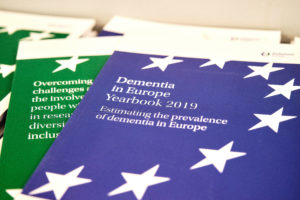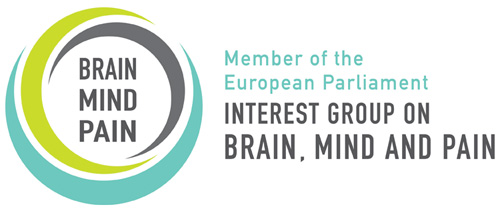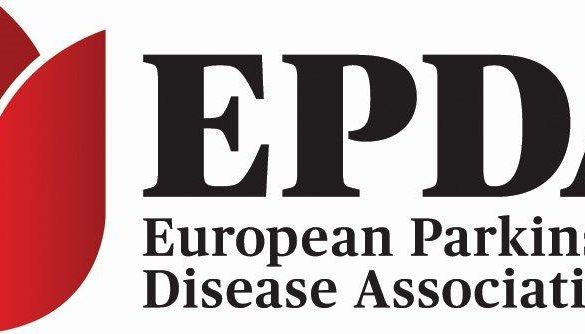18 February: Despite a marked reduction in the prevalence of dementia, the number of people with dementia is set to double by 2050 according to new Alzheimer Europe report
 On 18 February, at a European Parliament lunch debate hosted by Christophe Hansen MEP (Luxembourg), Alzheimer Europe launched a new report presenting the findings of its collaborative analysis of recent prevalence studies and setting out updated prevalence rates for dementia in Europe.
On 18 February, at a European Parliament lunch debate hosted by Christophe Hansen MEP (Luxembourg), Alzheimer Europe launched a new report presenting the findings of its collaborative analysis of recent prevalence studies and setting out updated prevalence rates for dementia in Europe.
The key findings of Alzheimer Europe’s report include:
- Across men and women and across most age groups, there has been a reduction in the prevalence of dementia over the past ten years when compared to 2008 estimates.
- The number of people living with dementia in the European Union (EU27) is estimated to be 7,853,705 and in European countries represented by AE members, 9,780,678. Compared to its earlier estimates, this constitutes a significant reduction from 8,785,645 for the EU27 and from 10,935,444 for the broader European region.
- Women continue to be disproportionately affected by dementia with 6,650,228 women and 3,130,449 men living with dementia in Europe.
- The numbers of people with dementia in Europe will almost double by 2050 increasing to 14,298,671 in the European Union and 18,846,286 in the wider European region.
Commenting on the findings, Alzheimer Europe Executive Director, Jean Georges, said “It is promising to see that healthier lifestyles, better education and improved control of cardiovascular risk factors seem to have contributed to a reduction of the prevalence of dementia. However, our report also demonstrates that the number of people living with the condition is set to increase substantially in the years ahead, which will only place greater pressure on care and support services unless better ways of treating and preventing dementia are identified. If people with dementia, their families and carers are to receive the high-quality and person-centred care they need, governments must ensure their health and care systems are ready to meet this demand and greater investments in research into the treatment and prevention of dementia are needed.”
The 2019 Yearbook “Estimating the prevalence of dementia in Europe” received funding under an operating grant from the European Union’s Health Programme (2014-2020). The policy report was authored by Project Officer Christophe Bintener and Policy Officer Owen Miller. It can be purchased or downloaded via the Alzheimer Europe website: https://www.alzheimer-europe.org/Publications/









